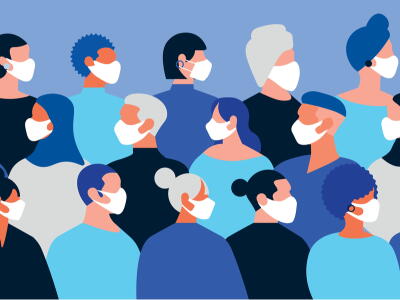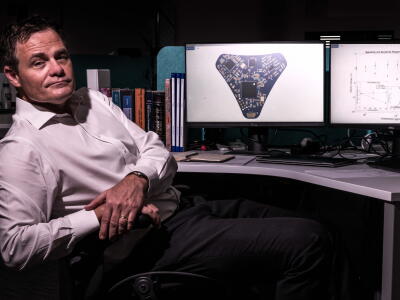Music as a catalyst for health and wellbeing
By: Luis Perez
Posted on
From working with HIV-affected communities in the Gambia to supporting migrant women in Australia, one constant has guided Dr McConnell’s research journey: the power of music to promote social connection and wellbeing.
They say music soothes the savage beast, yet the old adage is only the prelude to music’s real potential.
Time and again, research has shown songs can be much more than assuasive sounds, capable of bringing people together, supporting mental health and even helping patients manage physical pain.
Dr Bonnie McConnell is no stranger to the multifaceted benefits of music-making. As an ethnomusicologist, she studies music at the intersection of culture and social life.
“Music affects us on multiple levels. It can help us create a sense of belonging, regulate our emotions and serve as a means to pass historical knowledge from generation to generation,” McConnell says.
“I use ethnographic methods to gain understanding of music through active participation and observation, exploring its potential to act as a tool for the promotion of health.”
In her quest for knowledge, Dr. McConnell spent 6 years in Africa, where she learned music could transcend political barriers—uniting marginalised groups and acting as a catalyst for health education.
“In my research in the Gambia I worked with a support group for people living with HIV,” she says.
“One of the most memorable experiences from my fieldwork was witnessing the way music was used within this group. Singing together helped people overcome feelings of loneliness and shame. It helped them feel part of a group and hopeful about the future.
“In this context, I found music-making to be a powerful way to engage marginalised groups. For example, music proved to be a culturally appropriate and accessible way to involve rural women without formal education and limited access to health information and care.”
Five years later, McConnell is poised to bring her invaluable knowledge to the global stage. As co-founder of the Musical Care International Network, she is facilitating collaboration between specialists from 24 different countries.
“The network fosters dialogue and exchange of ideas between people with different disciplinary and cultural perspectives, connecting researchers and practitioners to inform both practice and research,” says McConnell.
“In Australia, there is growing recognition of the role that music and the arts can play in supporting health and wellbeing, but greater support and funding are needed to benefit from diverse forms of musical care.
“Our network will facilitate the development of a broad and robust evidence base that can inform the understanding of musical care. Sharing this knowledge across national contexts can contribute to improving policy and health outcomes for diverse groups in Australia.”
In parallel to her international strides, McConnell is also focused on helping local minority groups through music. In a project called CHIME-In, her research is supporting migrant and refugee women during the perinatal period.
“Poor mental health during and after pregnancy is a serious health issue,” she explains. “One in five mothers in Australia experience perinatal depression or anxiety, and mothers from migrant and refugee backgrounds experience these conditions at higher rates due to various factors, including disconnection from their social support networks,” she says.
“For women who are separated from their cultures, familiar forms of music-making can help to create a sense of social connection and belonging.”
With music demanding more and more attention from researchers, McConnell is already thinking about the next generation of musical care experts. Teaming up with colleagues from RSHA and the College of Health and Medicine, she is in the process of developing health humanities education at ANU.
“This project brings together multiple disciplinary perspectives, resulting in new coursework that will give students an understanding of varied ways they can use their arts practice to support health and wellbeing,” McConnell explains.
As evidenced by her career, music can serve as a unique means to support health, educational, spiritual, and social needs throughout the lifetime. However, relying on its mere application does not ensure the effectiveness of musical care interventions.
"If we make assumptions about music without considering cultural context," she warns, "well-intended programs can falter or even cause harm."
“There is a need for further recognition of cultural diversity in musical care practices. By doing so, we can pave the way for equitable outcomes, ultimately improving quality of life for those most in need.”
You may also like
Belonging can drive better pandemic health practices
A feeling of belonging, to their neighbourhood and to Australia is key to motivating people to adopt physical distancing and good hand hygiene behaviours during the COVID-19 pandemic new Australian…
Plant-based vaccines for COVID-19 closer with ANU help
An Australian plant may hold the key to rapidly producing vaccines for Ebola, COVID-19, influenza and other viruses as Australian National University researchers collaborate with Canadian…
WearOptimo's tiny tech gets a big boost
ANU innovation company WearOptimo is developing microwearable medical devices that could save lives.


